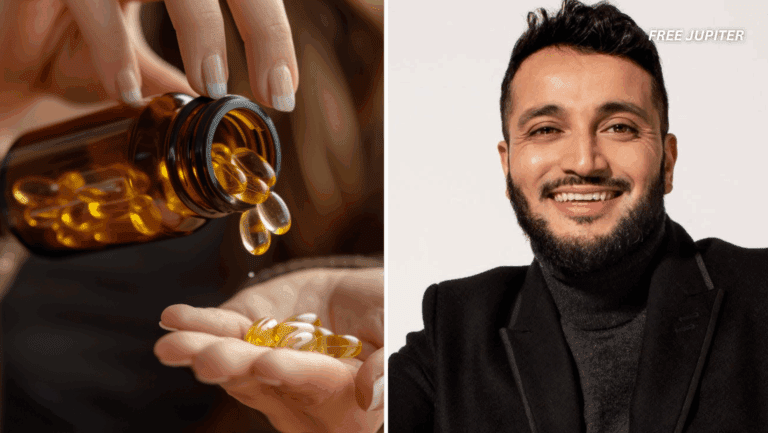If your only exposure to sex education came from a classroom that emphasized fear, shame, or abstinence-only principles, you’re not alone. Many of us left those early lessons believing that sex always led to pregnancy or a slew of infections, and the best way to stay safe was simply to avoid it entirely. But then came movies, pop culture, etc, which painted the exact opposite picture—perfect bodies, flawless experiences, and climaxes every single time.
Unfortunately, neither of those extremes paints a realistic or helpful image of what sex is actually like in the real world.
Research like that from the University of Georgia has consistently shown that abstinence-only education often fails to prepare young people for healthy, informed sexual lives. In fact, it can actually increase risky behaviors by leaving out crucial knowledge. On the other hand, relying solely on Hollywood or adult films to fill in the gaps can also lead to unrealistic expectations and misconceptions that are tough to unlearn.
Most of us started experimenting with sex without a real understanding of our bodies, our emotions, or what we actually wanted. We often had to learn through trial and error—sometimes the hard way. So, in collaboration with insights from real people who’ve reflected on what they wish they’d been taught earlier, here are 14 honest, valuable truths about sex that many of us had to figure out for ourselves.
1. Sex Can Be Awkward—Especially the First Time
Contrary to what rom-coms and steamy movie scenes suggest, sex isn’t always a smooth, sensual, candle-lit experience. Your first time or even your fifth might involve clumsy hands, nervous laughter, strange noises, or moments of uncertainty. That doesn’t mean you’re doing it wrong; it just means you’re human. Like anything else, sex can take practice, communication, and a sense of humor.
2. The Concept of “Virginity” Is Socially Constructed
The idea of virginity is often oversimplified and centered around heteronormative acts usually penetrative sex involving a penis and a vagina. But that definition erases many people’s experiences and reinforces outdated gender norms. Virginity isn’t a physical state; it’s a cultural narrative. What matters more than “losing” it is understanding consent, agency, and whether you’re emotionally and physically ready.
Read more: 9 Weird Ways Your Body Is Screaming for More Magnesium
3. The Female Anatomy Deserves Real Understanding—Including the Clitoris
One of the most neglected areas in traditional sex education is female pleasure. The clitoris, a highly sensitive organ with over 8,000 nerve endings, is often left out of conversations entirely. Understanding how it works along with other aspects of female anatomy can lead to more satisfying and respectful sexual experiences for everyone involved. Pleasure isn’t a luxury; it’s a right.
4. Gender Identity and Sexual Orientation Are Two Different Things
These terms often get tangled, but they refer to very different parts of who we are. Gender identity is about how you see and experience yourself whether male, female, both, neither, or somewhere in between. Sexual orientation, on the other hand, is about who you’re attracted to. Understanding the difference allows for more inclusive, compassionate conversations about sex and identity.
5. Sex Isn’t Limited to Penetration Between a Penis and a Vagina
Sexual expression is broad and diverse. Acts that don’t involve penetration can still be intimate, pleasurable, and deeply meaningful. Limiting the definition of sex to one type of act not only invalidates many experiences but also reinforces a narrow, heteronormative worldview. Exploring other kinds of intimacy oral, manual, emotional can be just as fulfilling.
6. Safe Sex Is Important for Everyone—Regardless of Gender or Orientation
STIs don’t discriminate based on who you love or how you express that love. Everyone straight, gay, bisexual, pansexual, or otherwise deserves access to accurate information about protection, testing, and communication. Safe sex practices should be universal, not just geared toward heterosexual couples.
Read more: 101-Year-Old Doctor Is Still Driving, Shares His 7 Tips For A Long Life
7. There Are Condoms for All Genders
Most people are familiar with external (male) condoms, but internal (female) condoms exist too and they offer another effective barrier method for protection against both pregnancy and STIs. Knowing your options means having more control and comfort in your sexual health decisions.
8. You Have a Range of Contraceptive Choices
From birth control pills and IUDs to patches, implants, and even fertility tracking apps there is no one-size-fits-all method. Everyone’s body reacts differently, and the best choice is the one that fits your lifestyle, needs, and comfort level. Understanding how each option works can empower you to make informed, intentional decisions.
9. There’s No Shame in Using Lube
Lube isn’t just for “older” people or “kinky” scenarios. It can make sex more comfortable, enjoyable, and safer by reducing friction and lowering the risk of tearing or irritation. Whether you’re having vaginal, anal, or any other kind of sex, lube can be your best friend and it should never be stigmatized.
10. Sex Can Be Messy, and That’s Totally Normal
Bodies are complex, and sex involves all kinds of fluids, sensations, and noises. Whether it’s sweat, saliva, or the unexpected sound of someone’s stomach rumbling mid-thrust, know this: messiness is part of the package. It’s nothing to be ashamed of it’s just biology doing its thing.
11. Peeing After Sex Is a Very Good Idea
For anyone with a urethra, peeing after sex helps flush out bacteria that may have entered during intercourse, which can significantly lower the risk of urinary tract infections (UTIs). It’s one of those simple yet powerful habits that can make a big difference in your post-sex health.
Read more: Inflammation Is On Your Plate: 20 Foods That Harm Your Body And 20 That Heal
12. Masturbation Is Healthy, Normal, and Incredibly Helpful
Self-pleasure is one of the most effective ways to understand your own body and what feels good to you. It can help reduce stress, improve sleep, and enhance sexual confidence. Masturbation is not something to feel guilty about it’s a valid, empowering part of your sexuality.
13. Consent Is Non-Negotiable
Consent must be enthusiastic, continuous, and freely given. It should never be assumed, and it can be withdrawn at any time. Teaching the value of consent isn’t just about avoiding harm it’s about creating environments of trust, communication, and mutual respect. Consent should be the foundation, not the footnote, of any sexual encounter.
14. Sex Is Supposed to Feel Good—for Everyone
Pleasure shouldn’t be one-sided or treated as taboo. Too often, sexual experiences especially for women or marginalized people are portrayed as something to endure rather than enjoy. But the truth is, sex should be a space of shared joy, intimacy, and connection. Your pleasure matters. So does your comfort, your voice, and your boundaries.
The Education We Deserved
Sex isn’t something we’re just supposed to magically “figure out.” It’s a lifelong learning process that evolves as we grow, build relationships, and discover more about ourselves. The silence, shame, and misinformation that so often surround sex do more harm than good.
What we truly need is open, inclusive, honest dialogue—conversations that normalize questions, respect different experiences, and center consent and communication. Whether you’re just beginning your sexual journey or revisiting it with fresh eyes, know this: You deserve pleasure, knowledge, safety, and agency.
Let’s talk more. Let’s ask more. And let’s teach the next generation better than we were taught.










